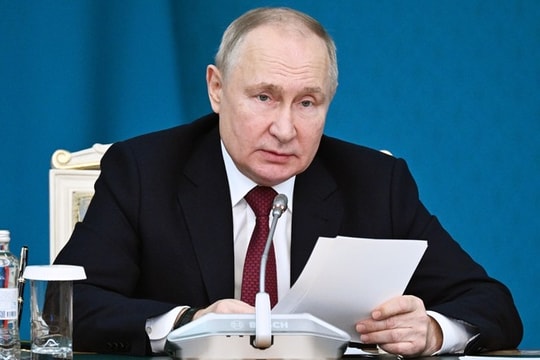The world last week: Breaking many traditional values
(Baonghean) - Although they are close allies, Europe's sentiment towards the US has clearly declined since the Covid-19 pandemic broke out. China made a rare move by not setting a GDP target this year. These are notable international issues of the past week.
Europe and America turn their backs
President Donald Trump is facing a decline in America's international standing, while European countries are increasingly inclined to the idea that China can replace the US and become the world's future leader. This clear change is reflected in a series of public opinion polls in the past week in European countries, showing that the bond between the "old continent" and the US has been deeply broken since the Covid-19 pandemic broke out.
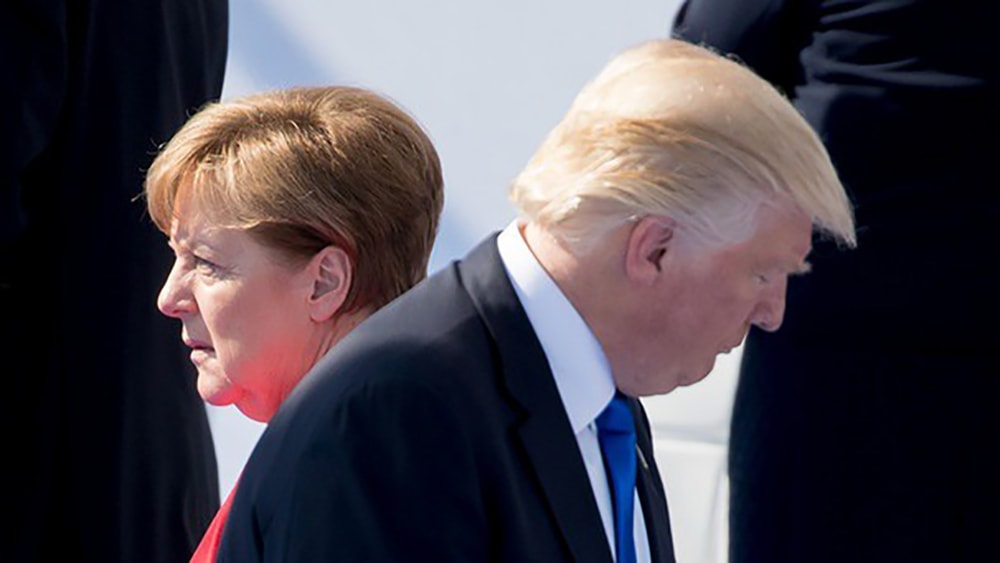 |
| The relationship between the US and Europe is deeply fractured. Photo: DPA |
76% of Germans said their opinion of the US had worsened, compared to just 36% of those who said the same about China. When asked whether they would maintain close ties with the US, only 37% agreed – a big drop from last year when the figure was 50%. In another question, only 10% of Germans rated the US as their country's most important partner.
Similarly, in the UK, people also expressed their "back-to-back" views on the US. A poll by the data analysis company YouGov showed that 37% of British people believe that promoting relations with Europe should be a priority, while only 13% said the same about the US, despite the UK leaving the European Union in January 2020.
Europe’s attitude has changed since President Donald Trump’s handling of the pandemic shocked the world. In particular, his comments speculating that injecting disinfectants could be used to treat Covid-19 patients caused skepticism and horror across Europe.
“For more than two centuries, America has stirred many emotions in the world: love and hatred, fear and hope, admiration and contempt, awe and anger. But there is one emotion toward America that has never been felt until now: pity,” wrote Irish Times columnist Fintan O'Toole.
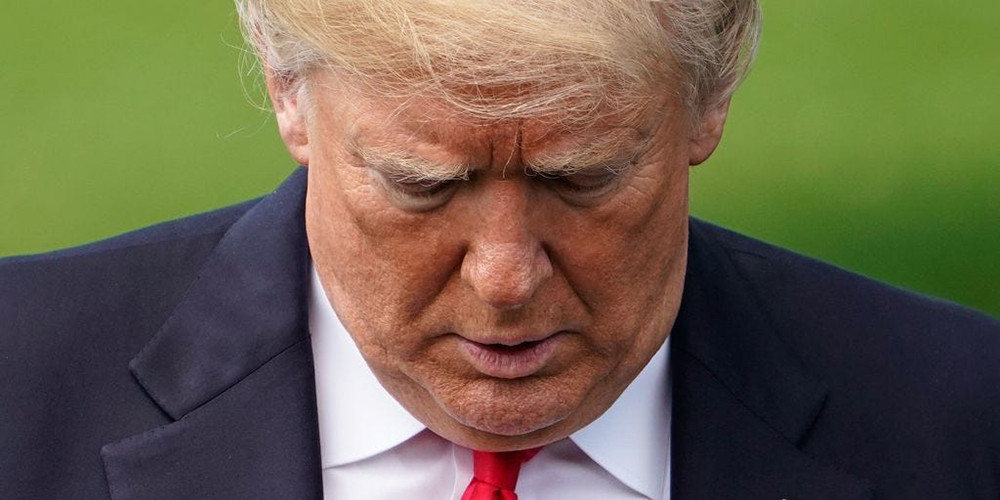 |
| President Trump's handling of the pandemic has drawn global criticism. Photo: Getty |
Some reports also indicate that President Trump is trying to buy exclusive rights to the production of the Covid-19 vaccine being developed in Germany. This has also caused anger across the "old continent". President Trump's actions in responding to Covid-19 seem to have further "exploded" negative feelings towards him, which have spread in Europe. A recent survey said that only 2% of French people trust President Trump to be a world leader.
As a result, Europe is increasingly “ignoring” the US. This is evident in every move of European governments, especially the increasingly seemingly unconcerned about President Trump’s warnings about Europe strengthening closer ties with China. A series of European countries are promoting cooperation with China’s largest telecommunications group Huawei to develop 5G networks, despite the threat of strong sanctions from the White House. In addition, trade agreements between Europe and China are being pushed more strongly than ever.
For its part, Beijing is demonstrating its ability to increase its influence in Europe. A report by investment bank GP Bullhound shows that since the European technology market reopened in 2018, China has caught up with the US in terms of investment in European technology companies, starting in 2018. Last week, Chinese telecom giant Huawei invested £5 million in a new technology center at Imperial College London.
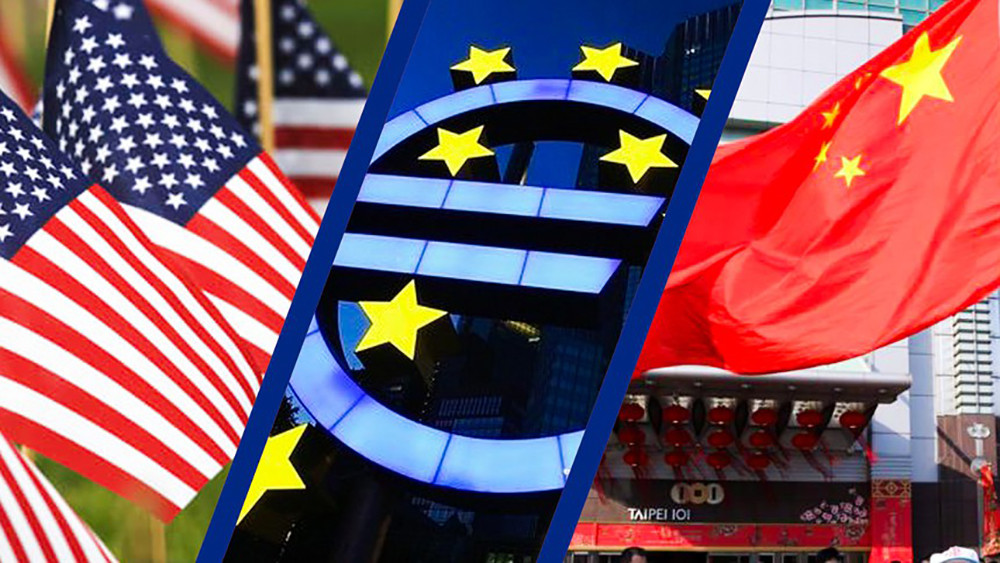 |
| China is gradually replacing the US position in Europe. |
Experts say it is clear that as the global economy plunges into a deep recession, European governments and businesses are increasingly turning to China for support and investment. And with President Trump’s reputation in Europe deteriorating, China’s rise will come at the expense of the United States.
China does not set a growth target.
For the first time in decades, China has abandoned its GDP growth target, citing uncertainty over the damage caused by the Covid-19 pandemic, an acknowledgment of the huge challenges the country faces amid a struggling economy and growing hostility on the international stage.
Speaking at the opening ceremony of the annual session of the National People's Congress - China's most important political event of the year that has been "overshadowed" by accusations that Beijing is responsible for the outbreak of the global pandemic, and the unemployment situation at home - Premier Li Keqiang said that China has not set a specific target for economic growth in 2020, due to many unpredictable factors.
The announcement marks the first time since 1990 that China has abandoned a GDP target, and the government will instead prioritize stabilizing employment, increasing personal income, ensuring people's living standards, and alleviating poverty in rural areas. China's economic growth fell 6.8% in the first quarter from a year earlier and is expected to slow further in the second quarter.
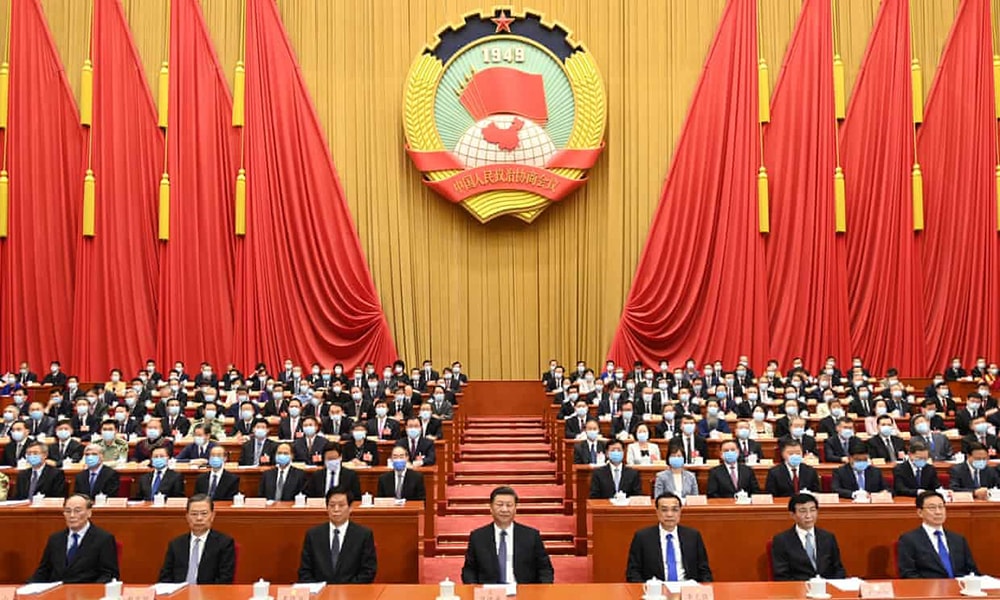 |
| Chinese President Xi Jinping (center) attends the opening of the annual National People's Congress session in Beijing on May 22. Photo: Xinhua |
Therefore, the government called on all levels to “tighten their belts” and all surplus, unused and transferred budgets will be recovered and reallocated for better use. The deficit is expected to exceed 3.6% of GDP this year, with a deficit of 1,000 billion yuan compared to last year. 1,000 billion yuan in government bonds will be issued to control Covid-19. The Chinese premier called these “extraordinary measures in extraordinary times”.
Analysts say economic instability could threaten social stability and the power of the ruling party. Unemployment could reach 10%. Failure to meet commitments such as doubling GDP between 2010 and 2020 could undermine the leader's credibility. President Xi Jinping has identified goals such as eradicating poverty and achieving a moderately prosperous society by 2020 as among the government's key objectives. Before the pandemic, China expected its growth target to reach 6%.
Setting targets in an uncertain economic environment is risky, says Bloomberg economist Chang Shu. Breaking with decades of tradition, targets are now embedded in economic policy. The challenge now is to figure out how to do it without a GDP target.
Detailed measures include further VAT cuts and an additional 500 billion yuan in tax cuts. To invest in infrastructure, local governments will issue 3.75 trillion yuan in special bonds this year. Economists expect issuance to reach 4 trillion yuan.
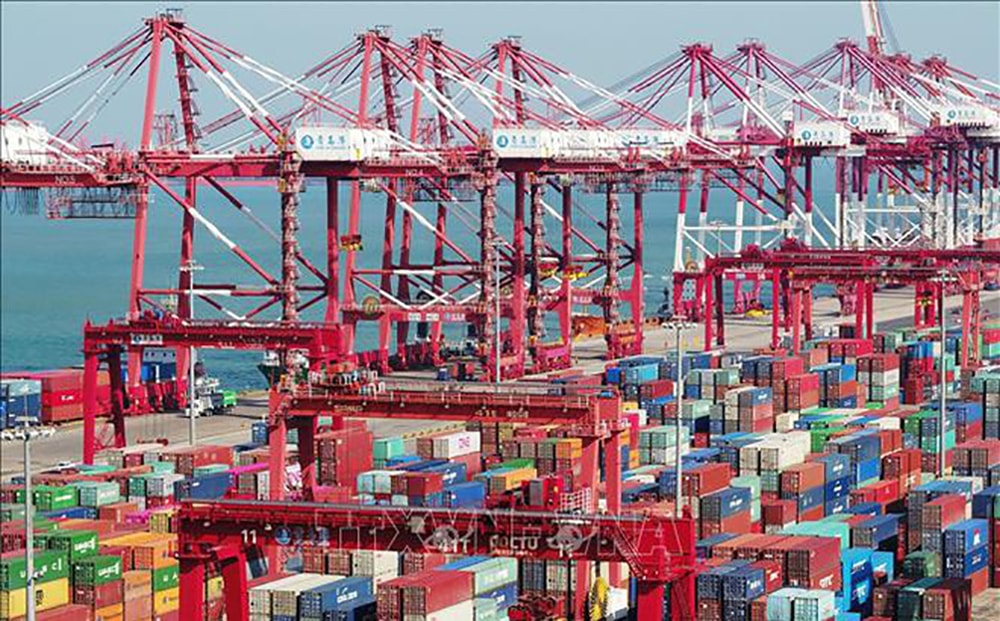 |
| Container port in Qingdao, Shandong province, eastern China. Photo: THX/TTXVN |
However, analysts say that while many economic stimulus packages have been announced, the government's growth ambitions are still limited by the risks of rising other debts. China borrowed heavily to stabilize the economy after the 2008 crisis; at the same time, rising unemployment could force the government to "step in".


